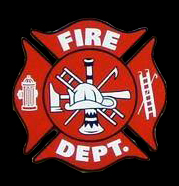Fire Prevention
You need to know
Did you know that if a fire starts in your home, you may have just two minutes to escape?
The most effective way to protect yourself and your home from fire is to identify and remove fire hazards. 60 percent of house fire deaths occur in homes with no working smoke alarms. During a home fire, working smoke alarms and a fire escape plan that has been practiced regularly can save lives.
 Prepare
Prepare
Preparing and Preventing a Home Fire – Steps You Can Take Now
- Keep items that can catch on fire at least three feet away from anything that gets hot, such as space heaters.
- Never smoke in bed.
- Talk to your children regularly about the dangers of fire, matches and lighters and keep them out of reach.
- Turn portable heaters off when you leave the room or go to sleep
- Install smoke alarms on every level of your home, inside bedrooms and outside sleeping areas.
- Teach your children what smoke alarms sound like and what to do when they hear one.
- Test smoke alarms once a month, if they’re not working, change the batteries.
 Respond
Respond
Follow Your Escape Plan
During a home fire, remember to GET OUT, STAY OUT and CALL 9-1-1 or (573) 885-3366.
- If closed doors or handles are warm, use your second way out. Never open doors that are warm to the touch.
- Crawl low under smoke.
- Go to your outside meeting place and then call for help.
- If smoke, heat or flames block your exit routes, stay in the room with doors closed. Place a wet towel under the door and call the fire department or 9-1-1. Open a window and wave a brightly colored cloth or flashlight to signal for help.
 Recover
Recover
Immediately After a House Fire
- Have injuries treated by a medical professional. Wash small wounds with soap and water. To help prevent infection of small wounds, use bandages and replace them if they become soiled, damaged or waterlogged.
- Remain calm. Pace yourself. You may find yourself in the position of taking charge of other people. Listen carefully to what people are telling you, and deal patiently with urgent situations first.
- Check with the fire department to make sure your residence is safe to enter.
- Anyone entering your damaged home should wear long pants, a long-sleeved shirt, closed-toed rubber-soled shoes or boots and work gloves, plus dust masks, safety goggles and/or a hard hat when necessary.
Fire Safety Tips
- Talk with all household members about a fire escape plan and practice the plan twice a year.
- Test smoke alarms once a month, if they’re not working, change the batteries.
- If a fire occurs in your home, GET OUT, STAY OUT and CALL for help.
- Install smoke alarms on every level of your home, inside bedrooms and outside sleeping areas.
